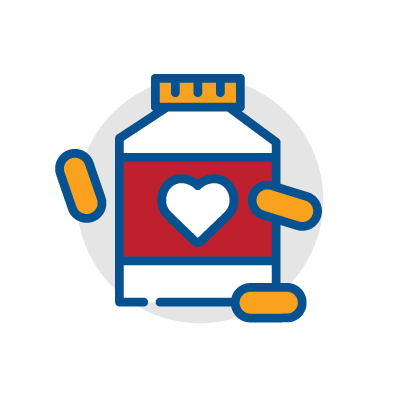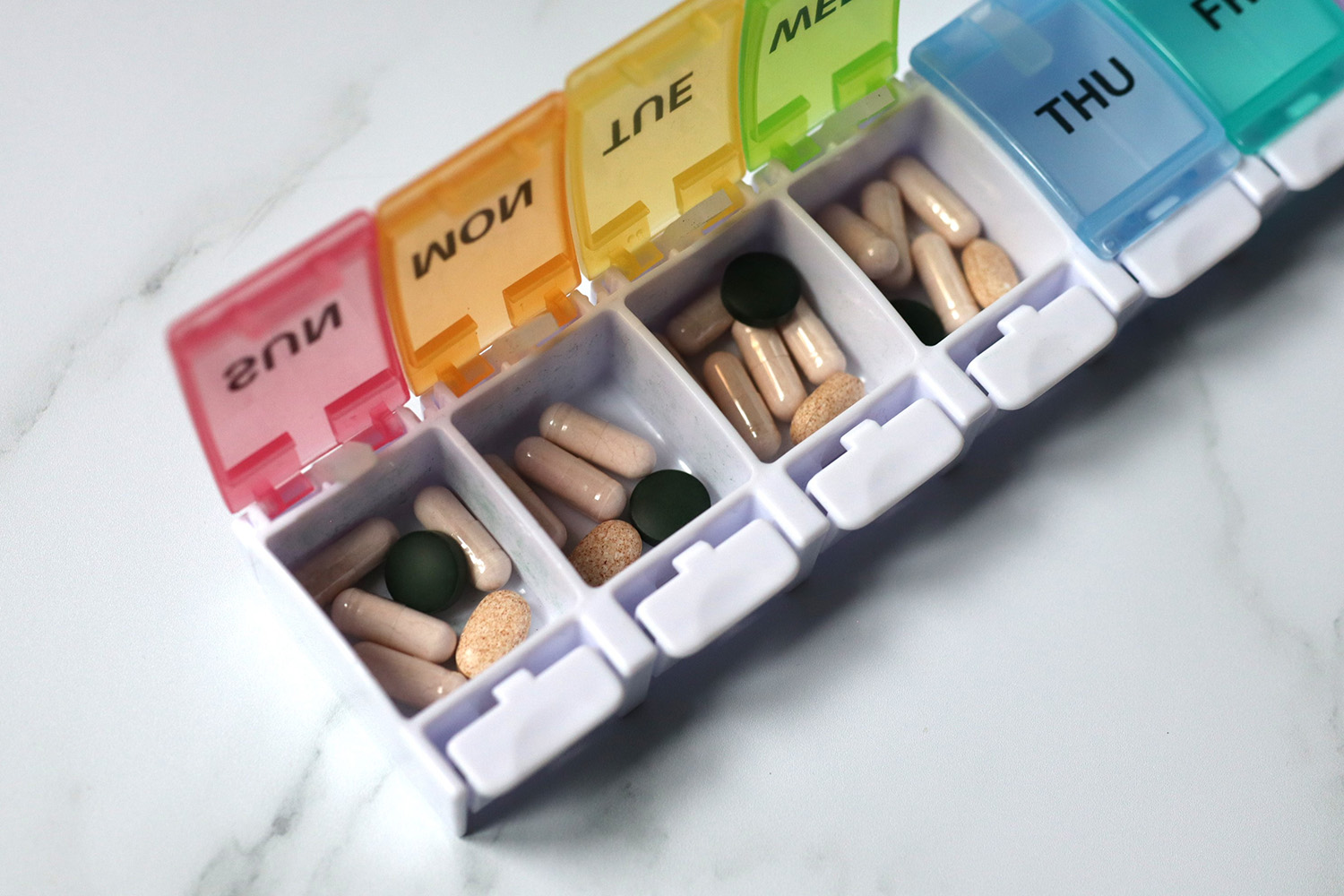 Vitamins & Supplements
Vitamins & Supplements
Older adults may struggle to get adequate amounts of certain nutrients due to dietary choices, chronic health conditions, or other reasons. Nutrition programs can help to address this by providing education about the best food sources for nutrients and, if needed, how to talk to their health care provider about vitamins and dietary supplements.
 Quick Guides
Quick Guides
- Calcium and Vitamin D— One-pager (Ohio Department of Aging)
- Vitamin B12 and You— One-pager (Ohio Department of Aging)
- Thinking About Taking A Dietary Supplement? (YouTube)— One-minute video (National Institutes of Health, 2014)
- Vitamin Supplements: Hype or Help for Healthy Eating— Article (American Heart Association
- 6 Tips: How Herbs Can Interact with Medicines— Information you should know about herbs that have a high risk of potential interactions with certain medicines (National Center for Complementary and Integrative Health)
 Guides
Guides
- Oral Nutrition Supplements — Tips for offering, funding, and reporting meals that include oral nutrition supplements (Nutrition and Aging Resource Center, 2023)
- Botanical Dietary Supplements— General information (Office of Dietary Supplements)
- Spotlight on Collagen— Article (Harvard T.H. Chan School of Public Health)
 Tools & Toolkits
Tools & Toolkits
- Dietary Supplements— Overview of supplements and federal regulations (Office of Dietary Supplements)
- Consumer-Focused Information Sheet— Background information on dietary supplements (Office of Dietary Supplements)
- Dietary Supplement Fact Sheets— A-to-Z collection (Office of Dietary Supplements)
- OPSS Scorecard— Checklist to screen your dietary supplement for safety (Operation Supplement Safety)
- Supplement Your Knowledge— Education initiative materials (FDA)
- Use and Safety of Dietary Supplements— Frequently asked questions (Office of Dietary Supplements)

